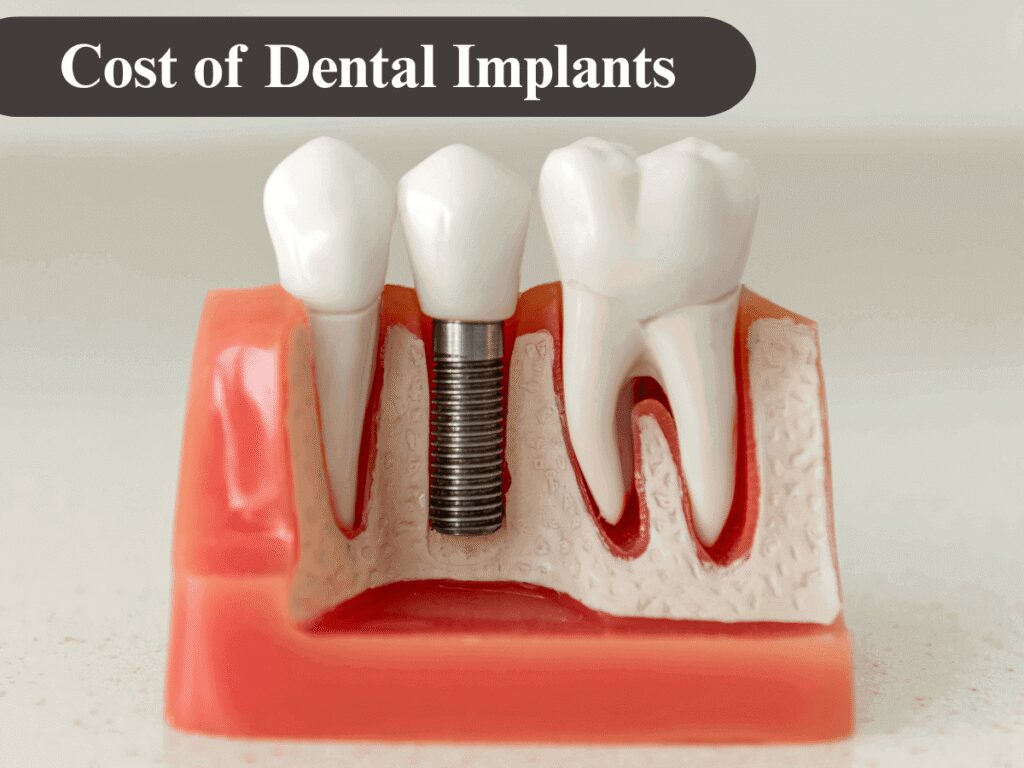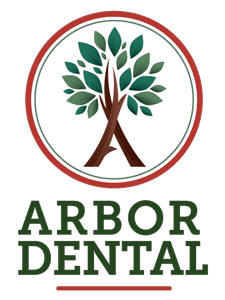When considering tooth replacement options in the Golden State, understanding the cost of full mouth dental implants in California is crucial for making an informed decision about your oral health investment. In 2026, single dental implants in California typically range from $3,000 to $6,000, while full mouth dental implants cost between $25,000 and $90,000. Dental implants represent the gold standard for permanent tooth replacement, offering superior functionality and aesthetics compared to traditional dentures or bridges. However, the financial commitment varies significantly across California’s diverse regions, making it essential to understand pricing factors before scheduling your consultation.
California’s dental implant costs typically exceed national averages due to higher operating expenses, premium materials, and the state’s elevated cost of living. Got a missing tooth or want a full smile overhaul? Our guide makes it easy to understand your investment with Arbor Dental.
| Treatment Type | Cost Range | What’s Included |
| Single Tooth Implant | $3,000 – $6,000 | Implant fixture, abutment, crown |
| Multiple Implants | $6,000 – $30,000 | 2-6 individual implants |
| Full Mouth Implants | $25,000 – $90,000 | Complete mouth restoration |
| All-on-4 (per arch) | $15,000 – $30,000 | 4 implants supporting a full arch |
| Implant Fixture Only | $1,000 – $3,000 | Surgical placement only |
| Abutment | $300 – $500 | Connection piece |
| Crown | $1,000 – $3,000 | Tooth restoration |
| Bone Grafting | $250 – $1,100 | If additional support is needed |
Costs vary by location, dentist expertise, and complexity of case

How Much Do Dental Implants Cost in California?
Single Tooth Implant Costs
A complete single tooth implant consists of three essential components that work together to create a permanent solution:
- Implant fixture: The titanium screw placed into your jawbone ($1,000 – $3,000)
- Abutment: The connector piece that links the implant to the crown ($300 – $500)
- Crown: The visible tooth restoration ($1,000 – $3,000)
California’s pricing exceeds national averages by approximately 20-30% due to several factors. The state’s stringent regulations, higher real estate costs, and premium dental laboratories contribute to elevated treatment expenses. Additionally, California dentists often invest in advanced technology and continuing education, which translates to higher service fees but improved treatment outcomes.
Regional variations within California significantly impact pricing. Urban areas like San Francisco and Los Angeles command premium rates, while Central Valley locations offer more affordable options without compromising quality.
Cost Components Explained
Implant fixture placement costs represent the surgical component of treatment. This procedure requires specialized training, sterile surgical facilities, and precise planning. The fee covers:
- Pre-surgical consultation and planning
- Local anesthesia or sedation
- Surgical placement procedure
- Post-operative care and follow-up visits
Abutment and crown expenses complete the restoration process. These components require custom fabrication based on digital impressions or traditional molds. Premium materials like zirconia or porcelain-fused-to-metal crowns cost more but offer superior aesthetics and durability.
Additional procedures may include tooth extractions, bone grafting, or sinus lifts, each adding $250-$1,100 to your total investment, depending on complexity.
Full Mouth Dental Implants Cost in Los Angeles, California
Traditional Full-Mouth Implants
Full mouth dental implants cost in California varies dramatically based on the chosen treatment approach. Traditional full mouth restoration involves placing 12-16 individual implants to support 28-32 teeth, creating the most comprehensive solution available.
The individual implant approach offers several advantages:
- Maximum stability and function
- Individual tooth replacement capability
- Easiest maintenance and cleaning
- Highest success rates long-term
Cost breakdown for traditional full-mouth implants:
- Upper arch: $40,000 – $50,000
- Lower arch: $35,000 – $45,000
- Complete mouth: $75,000 – $90,000
The treatment timeline extends 6-12 months, allowing proper healing between surgical phases and ensuring optimal integration.
All-on-4 and All-on-6 Options
More affordable full-mouth solutions include All-on-4 and All-on-6 systems, which use fewer implants to support complete arch restorations. These innovative approaches reduce costs while maintaining excellent functionality.
All-on-4 pricing per arch: $15,000 – $30,000
All-on-6 pricing per arch: $18,000 – $35,000
These systems work by strategically placing four or six implants at optimal angles to maximize bone contact and support. The immediate loading protocol often allows same-day temporary teeth, significantly reducing treatment time.
Factors Affecting Full-Mouth Costs
Several variables influence your final investment:
The number of implants required depends on bone density, jaw anatomy, and chosen implant restoration type. More implants increase costs but provide superior stability.
Bone grafting needs add complexity and expense when insufficient bone volume exists. Advanced grafting procedures can add $2,000-$5,000 per arch.
Geographic location within California creates significant price variations. Metropolitan areas typically charge 25-40% more than suburban or rural locations.
Average Cost of Dental Implants in California by Region
To comprehend the average expense of dental implants in California, one must consider the pricing disparities in its varied markets.
Northern California Pricing
San Francisco Bay Area costs represent the highest in California due to premium real estate, elevated operating expenses, and high demand for cosmetic dentistry. Single implants range $4,500-$6,000, while full mouth restorations reach $80,000-$90,000.
Sacramento and surrounding areas offer more moderate pricing, with single implants averaging $3,500-$5,000. The region provides excellent access to specialists while maintaining lower overhead costs than coastal cities.
Southern California Pricing
Los Angeles and Orange County command premium rates similar to San Francisco. Celebrity culture and aesthetic demands drive higher prices, with single implants averaging $4,000-$5,500.
Brentwood represents one of the premium dental markets within the greater Los Angeles area, with single implants ranging $4,500-$6,000 due to the affluent demographics and high-end practices serving the community.
San Diego area pricing falls slightly below LA rates while offering excellent quality care. Single implants typically cost $3,800-$5,200, making it attractive for comprehensive treatment.
Central California Considerations
Fresno, Bakersfield, and the Central Valley provide the most affordable dental implant costs in California. Single implants range $3,000-$4,500, offering substantial savings without compromising quality. Many patients travel from coastal areas to access these competitive rates.
Factors That Influence the Cost Of Dental Implants In California
Geographic Location
High cost of living areas vs. more affordable regions create dramatic price differences within California. Coastal cities with premium real estate markets charge significantly more than inland locations.
Urban vs. suburban pricing differences reflect overhead costs, competition levels, and patient demographics. Downtown practices often charge premium rates while suburban locations offer competitive pricing.
Dentist Expertise and Qualifications
Oral surgeons vs. general dentists offer different pricing structures based on specialization levels. Board-certified oral surgeons typically charge 20-30% more but provide advanced surgical expertise.
Board certification and experience levels justify higher fees through superior outcomes and reduced complication rates. Experienced implantologists with extensive training command premium rates but often deliver more predictable results.
Treatment Complexity
Simple vs. complex cases significantly impact pricing. Straightforward single tooth replacement costs less than complex full mouth reconstruction requiring extensive bone grafting.
Need for additional procedures, including extractions, bone grafting, sinus lifts, or soft tissue management, adds substantial costs to basic implant placement.
Material Quality and Brand
Premium vs. standard implant systems offer different price points and warranty coverage. Premium brands like Nobel Biocare or Straumann cost more but provide extensive research backing and superior surface treatments.
Warranty and longevity considerations factor into material selection. Premium implants often include lifetime warranties, while standard systems offer 5-10 year coverage.
Additional Costs to Consider
Pre-Treatment Procedures
Tooth extractions range $150-$600 per tooth, depending on complexity. Surgical extractions requiring bone preservation add additional costs.
Bone grafting and sinus lifts address insufficient bone volume, adding $250-$1,100 per site. Major grafting procedures using block grafts or membrane techniques cost significantly more.
3D imaging and treatment planning utilize CBCT scans and computer-guided surgery, adding $300-$800 to treatment costs while improving precision and outcomes.
Potential Complications
Revision procedures occasionally become necessary due to implant failure or complications, adding 50-100% of the original treatment costs.
Extended healing times may require additional appointments and temporary restorations, increasing overall investment.
Additional appointments for monitoring, adjustments, or complications add incremental costs throughout the treatment process.
Insurance Coverage and Financing Options
Dental Insurance Coverage
What’s typically covered vs. not covered varies significantly between plans. Most dental insurance covers 10-50% of implant costs, with annual maximums limiting benefits to $1,000-$2,000.
Medical insurance considerations may apply when implants address medical necessity rather than cosmetic concerns. TMJ disorders, sleep apnea, or facial trauma sometimes qualify for medical coverage.
Financing Solutions
Payment plans offered by dental offices typically include 0% interest options for 12-24 months, making treatment more accessible through monthly payments.
Third-party financing options like CareCredit, LendingClub, or Alphaeon Credit provide extended payment terms with competitive interest rates for qualified applicants.
Health Savings Accounts (HSA) and Flexible Spending Accounts (FSA) offer tax-advantaged payment methods, effectively reducing treatment costs by your tax rate percentage.
Conclusion
Understanding the cost of dental implants in California empowers you to make informed decisions about your oral health investment. While California’s pricing exceeds national averages, the state offers world-class expertise, advanced technology, and comprehensive treatment options. Regional variations provide opportunities for significant savings, with Central Valley locations offering costs 20-30% below coastal cities.
Financing options, insurance benefits, and flexible payment plans make treatment accessible regardless of budget constraints. When considering dental implants, focus on long-term value rather than initial costs, as properly placed implants provide decades of reliable function and improved quality of life.
FAQ’s
1. How much does a single dental implant cost in California?
A single dental implant in California costs between $3,500 – $6,000, including the implant, abutment, and crown. Los Angeles and San Francisco typically charge $4,500 – $6,000, while other areas range $3,000 – $4,500 depending on the dentist’s experience and location.
2. Does insurance cover dental implants in California?
Most dental insurance plans in California cover 10-50% of dental implant costs, typically classifying them as major procedures. Medical insurance may cover implants if tooth loss resulted from an accident or a medical condition. Maximum annual benefits usually range $1,000-$2,000.
3. How much is a full set of dental implants in California?
A full set of dental implants in California costs $14,617 to $29,902 for traditional implants. All-on-4 implants range $15,000-$30,000 per arch. Total mouth reconstruction with individual implants typically costs $60,000-$90,000, varying by location and complexity.
4. Are dental implants safe?
Dental implants are considered very safe with a 95-98% success rate. Common risks include infection, nerve damage, and implant failure. When performed by qualified oral surgeons using FDA-approved materials, serious complications are rare, occurring in less than 5% of cases.
5. How long do dental implants last in California?
Dental implants in California typically last 25-30 years or a lifetime with proper care. The titanium implant post can last forever, while crowns may need replacement every 15-20 years. Success depends on oral hygiene, regular checkups, and avoiding smoking.



